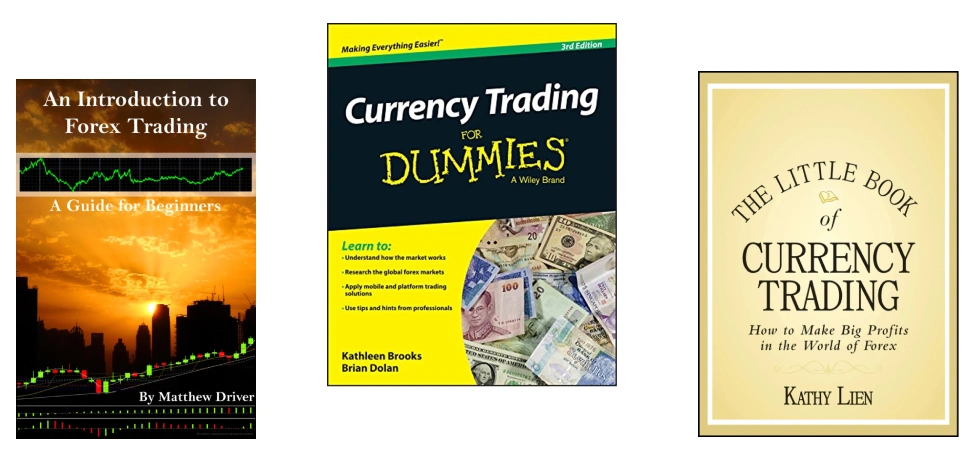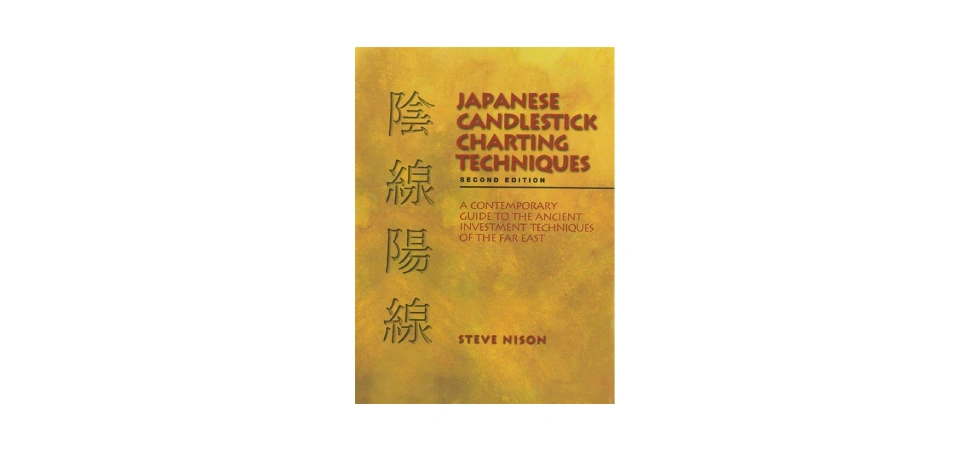27.05
Share ArticleThe top 9 best Forex trading books for beginners

If you are new to Forex trading and want to expand your knowledge, it is recommended to read books written by experts and experienced traders. Forex books contain useful information, strategies and tips that will help beginners understand the intricacies of the Forex market and develop profitable trading strategies. In this article, we present the 9 best Forex books for beginners.
1. "Forex Trading for Beginners" by Brian Dolan and Kathryn Brooks
As the title suggests, this book is a great resource for beginners who have no knowledge of Forex trading. It covers the basics of the foreign exchange market, fundamental analysis, technical analysis, risk management, and trading psychology.
2. "A Beginner's Guide to Forex Trading" by Matthew Driver
This book is a step-by-step guide to Forex trading, beginning with the basics and moving on to advanced topics. Topics such as currency terminology, charting techniques, trading strategies, and risk management are covered.
3. "The Little Book of Forex Trading" by Kathy Lien
Kathy Lien is a renowned Forex expert and this book is a concise but comprehensive guide to Forex trading. Technical analysis, trading psychology, risk management and other important topics are explained in an accessible manner.
4. "Forex Trading for Beginners" by Anna Carling
This book aims to explain the basics of Forex trading and lay a solid foundation for beginners. Covering topics such as currency pairs, market analysis and trading strategies, this book is the perfect guide for those who are just beginning to learn the Forex market.
5. "The Forex Trading Course" by Abe Kopnas
Abe Kopnas self-teaching guide on how to become a successful Forex trader. Abe Kopnas is a renowned Forex trainer and this book is a comprehensive guide to the Forex market. He covers topics such as technical analysis, risk management, and trading psychology, providing the reader with a complete understanding of the Forex market.
6. "Territorial Trading" by Mark Douglas
This book has nothing to do with the Forex market, but should be read by all traders, including beginners. It explores the psychology of trading to help traders overcome emotional obstacles and develop a solid, focused mindset.

7. "Japanese Candlestick Charting Techniques" by Steve Neeson
This book by Steve Neeson is considered the bible of candlestick analysis. It teaches beginners how to interpret candlestick patterns and use them to make good trading decisions.
8. "Naked Forex: High Probability Trading Techniques Without Indicators" by Alex Nekritin and Walter Peters
This book breaks the popular belief that complex technical indicators are necessary for trading. It simplifies the approach to trading for beginners and teaches how to rely on analyzing price action to capitalize on high probability trading opportunities.
9. "A New Life of Trading" by Alexander Elder
This book covers all aspects of trading, including Forex, stocks, and futures. Focusing on technical analysis, risk management and trading psychology, it offers a comprehensive approach to trading.
Overall, reading Forex market books is a worthy investment for beginners who want to deepen their knowledge of the market. The ten books listed above cover a variety of topics, from Forex basics to in-depth tips and strategies. These books will help beginners gain a thorough understanding of the Forex market and develop their own methods for profitable trading. Remember that successful trading requires constant learning, and reading these books is an important step towards becoming a successful Forex trader.
FAQ
Q: How much money do I need to begin trading Forex?
A: These days you can begin trading Forex with as little as $1,000 in a micro account, but for a standard account you will need much more. Leverage from brokers can allow you to trade much larger amounts than your account balance. Brokers may provide capital in a predetermined ratio, such as pledging $50 dollars for every $1 you put into a trade. This means that you may only need $10 of your own funds to trade $500 worth of currency.
The specific minimum deposit amount depends on the broker you use and the amount of leverage they allow. But in general, Forex trading is becoming more and more accessible even with a small starting balance compared to some other markets.
Q: Are Forex markets volatile?
A: Forex markets are some of the most liquid markets in the world. Therefore, they can be less volatile than other markets such as stock markets. The volatility of a particular currency depends on many factors such as a country's politics and economy. Therefore, events such as economic instability in the form of non-payments or an imbalance in trade relations with another currency can lead to significant volatility.
Q: Are the Forex markets regulated?
A: Regulation of Forex trading depends on the jurisdiction. Countries such as the United States have well-developed infrastructure and markets for Forex trading. In the United States, Forex transactions are heavily regulated by the National Futures Association (NFA) and the Commodity Futures Trading Commission (CFTC). However, due to the heavy use of leverage in Forex trading, developing countries such as India and China have restrictions on firms and capital used in Forex trading. Europe is the largest market for Forex trading. The Financial Conduct Authority (FCA) controls and regulates Forex trading in the UK.
Q: What currencies can I trade?
A: Currencies with high liquidity have a ready market and exhibit smooth and predictable price action in response to external events. The dollars is the most traded currency in the world. It participates in six of the seven most liquid currency pairs in the market. Currencies with low liquidity, however, cannot be traded in large lots without significant market movements associated with the price.
Reviews